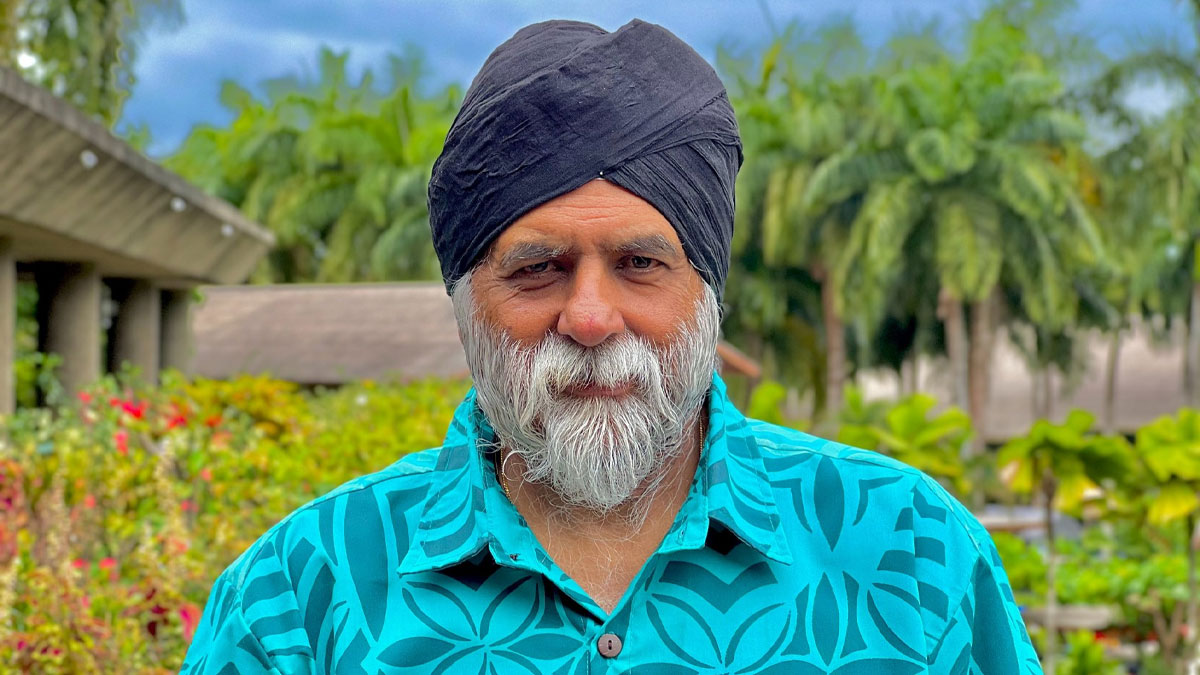
As artificial intelligence is rapidly weaving itself into the very fabric of everyday life, University of the South Pacific Vice-Chancellor Professor Pal Ahluwalia has highlighted the importance of integrating AI in education while ensuring it serves the region’s diverse communities without compromising individual autonomy or cultural identity.
He says the education sector is on the precipice of profound transformation.
Professor Ahluwalia says as the higher education sector globally comes to terms with the impact of AI, the Pacific region faces unique challenges and opportunities when it comes to integrating AI and automation.
He says in a region where people are key to preserving cultural values, the centrality of human agency remains paramount.
The Vice Chancellor says as machines become an integral component of learning environments, the challenge lies in leveraging AI’s capabilities while preserving and enhancing human agency.
He says AI has the unparalleled potential to democratise education in the Pacific.
The Professor also says our region is home to a wide variety of cultures and languages that are deeply connected and dominated by the ocean and its surroundings.
He stresses consequently, AI must be developed and utilised with sensitivity to local contexts, ensuring that it supports, rather than diminishes, cultural identity and language preservation.
The Vice Chancellor says personalised learning platforms powered by AI can adapt to individual learners’ needs, pace, and style, offering a tailored educational experience once reserved for elites through practices such as private tutoring.
He says this technological shift promises to bridge the gap for learners in under-resourced settings, offering access to quality education worldwide.
Professor Ahluwalia says USP has significantly contributed to integrating artificial intelligence into education practices across the Pacific region.
He says by establishing innovative programmes and collaborations, USP has facilitated the development of AI-driven tools and resources that enhance learning and teaching experiences since 1968.
He says these initiatives include incorporating AI to personalise educational content, enabling adaptive learning pathways, and providing training to educators on effectively utilising AI technologies.
The Vice Chancellor further says AI presents opportunities for economic development through new industries and improved efficiencies.
He says education systems will need to adapt and prepare students for evolving job markets while ensuring that automation does not disproportionately impact already vulnerable communities.
Professor Ahluwalia says USP’s efforts in research and development have supported the region in addressing educational challenges specific to the Pacific context, fostering a more inclusive and effective learning environment for students from diverse backgrounds.
He also says that through these advancements, the University is playing a pivotal role in preparing the Pacific workforce for future technological changes and opportunities.
Professor Ahluwalia says however, with these advantages and opportunities come significant concerns and challenges.
He says the most pressing is the potential erosion of human agency.
The Vice Chancellor says as algorithms increasingly influence what students learn and how they learn it, there is a risk that learners may cede control over their educational journeys to automated systems.
He says this could lead to a homogenisation of curricula dictated by algorithmic efficiencies rather than the diverse, critical thinking skills essential for thriving in a complex world.
Professor Ahluwalia says there also remains a concern about data privacy and the assurances needed to protect students’ personal information.
He says as educational platforms gather and analyse vast amounts of data to optimise learning experiences, questions arise about who controls this data and how it is used.
The Vice Chancellor says transparency and accountability are paramount in ensuring that technological advancement does not come at the cost of individual autonomy.
He further says that to preserve human agency, educators and policymakers must play a proactive role.
Professor Ahluwalia says at USP, their researchers are actively working on some critical issues which include the design and deployment of AI systems in education that must be guided by inclusive dialogues involving educators, students, and parents, ensuring that diverse perspectives shape how these technologies are used.
He also says that curricula should be developed to not only include technical literacy but also skills such as critical thinking, creativity, and ethical reasoning—skills that remain uniquely human and are less susceptible to automation.
Professor Ahluwalia says an ongoing ethical oversight mechanism must be established to monitor AI systems, ensuring they operate transparently and equitably.
He further says that by fostering an environment where humans and machines collaborate rather than compete, education can nurture the unique abilities of each learner.
Professor Ahluwalia says for our region, careful planning, cultural sensitivity, and ethical considerations are critical in maintaining human agency and ensuring that these technologies serve the needs of all our diverse communities.
He adds as we stand at this crossroads, the choices we make will shape not just the learners of today, but the architects of tomorrow's society.
Stay tuned for the latest news on our radio stations

